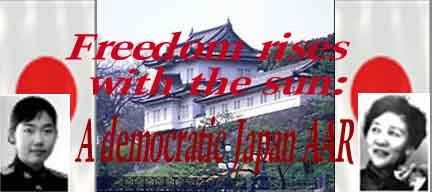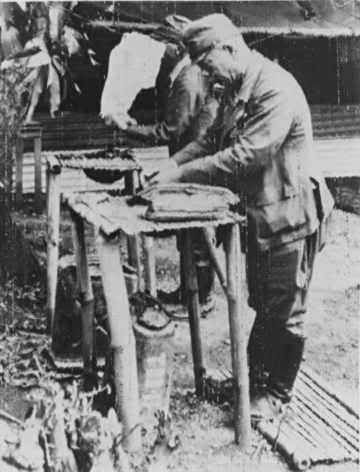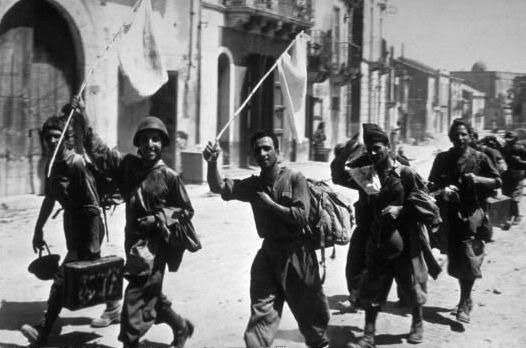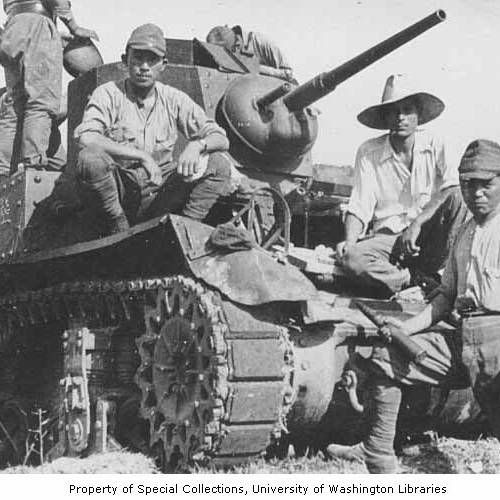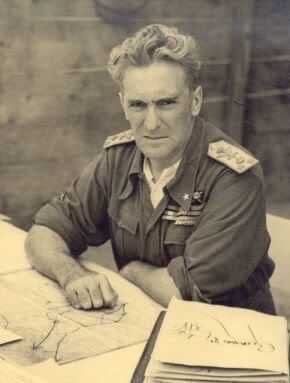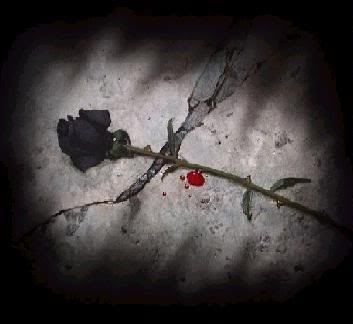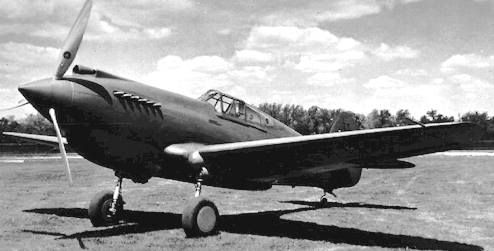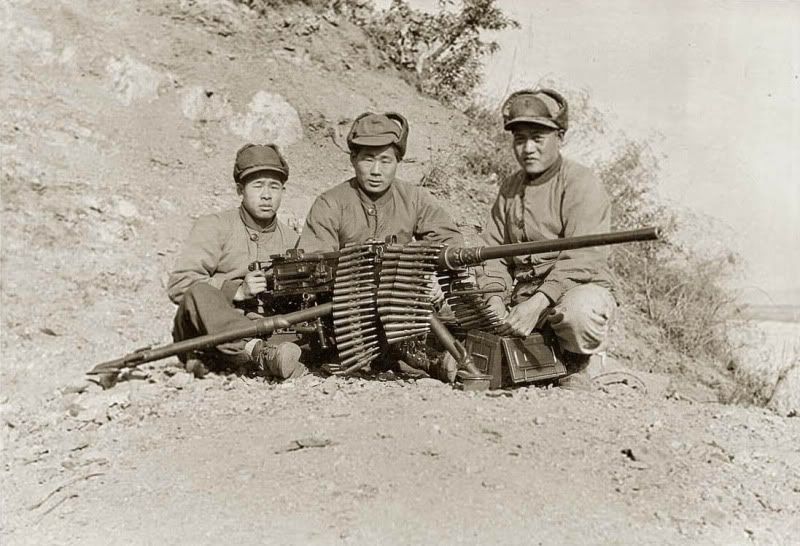Part III, by guest author KiMaSa (mostly)
The Langley Affair
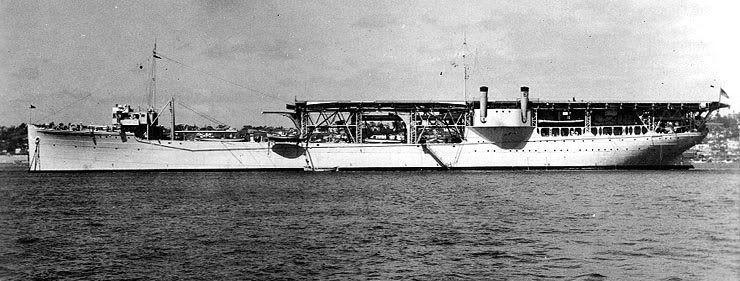
Aircraft Transport USS Langley
At the start of 1939 with tensions rising between Japan and Italy, and the prospect of a General European War also looming on the horizon, the aviation transport USS Langley was dispatched with a cargo of 36 new P-40 fighters bound for British held Malta and to Mozambique where 16 P-40s had been purchased for the provisional Air Force there. The voyage would end in tragedy some 40 miles South West of Crete in an incident that would trigger the formal entry of the United States into the Pacific Entente and subsequently into war with both Italy and Nazi Germany.
It has been suggested by revisionist historians that President Roosevelt deliberately conspired in the destruction of the Langley in order to facilitate US entry into WW II. The speculation states that FDR knew of the impending surprise attack on Taranto and intentionally ordered the Langley and her escort; the destroyer USS Pope into the same waters where the Japanese Strike Force was now retiring. While it is true that US officials were aware that the Kido Butai had transited the Suez on February 10, 1939, it is also true that there is no evidence suggesting any deliberate intent to hazard Langley either on the part of Roosevelt or any other official, American or Japanese.
What is known is this: On February 11, USS Langley arrived at the island of Malta to deliver 20 P-40 fighters which had been purchased by the British. After a two day stay in which Langley's crew attempted to make repairs to the old ship's number two boiler which had gone out of commission during the transit from Gibraltar, Langley departed Malta bound for Alexandria where the better facilities there would allow a more thorough repair job before proceeding on to Mozambique.
At 19:37 hours on February 13, number two boiler again failed, critically reducing Langley's speed at a moment when other events were coming to a head.
By 10:00 hours local time the following morning, Langley and Pope had received word of the Japanese strike on Taranto harbor. Both ships were immediately brought to General Quarters with extra lookouts sent topside.
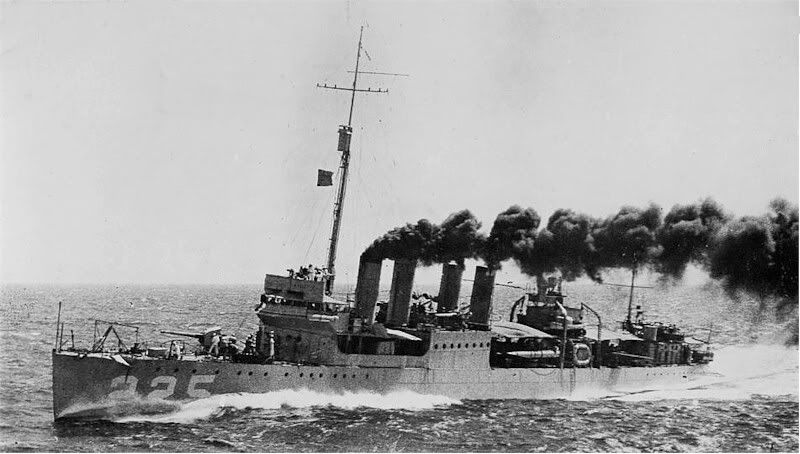
The USS Pope
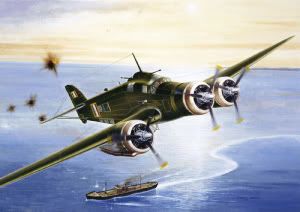
An Italian Sparviero bomber
At 13:07 an Italian reconnaissance bomber reported to base spotting a carrier and one escort vessel sailing approximately 200 miles north of Benghazi. The Regia Aeronautica immediately armed and dispatched Sparviero torpedo bombers to the contact point. At 15:17 hours lookouts aboard.USS Pope reported aircraft closing from the starboard. By this point the Italian bombers were already descending to begin their attacks. Aboard Langley, wireless operators attempted to signal the approaching aircraft without success. Both ships went to battle stations. In short order Langley had taken four torpedo hits and was burning along her entire length. The Pope was smaller, faster, and more manueverable but tied to the wounded transport, she also took two torpedo hits and went dead in the water with a 13 degree list. On both ships the order was given to abandon as wireless operators issued a general distress call before joining their shipmates in life rafts to await their fate.
Eighty miles east, these messages were received aboard the ships of the Kido Butai. Aboard the flagship, Admiral Yamamoto faced a dilemma as he weighed the safety of his own ships against the instinct to aid whatever survivors there might be from the American vessels. Finally Lieutenant Commander Kudo Shinsaku of the destroyer Ikazuchi signalled a request to carry out a rescue. Knowing that any ship sent to pick up survivors would be at serious risk from Italian bombers, Yamamoto finally gave consent warning Kudo that the Ikazuchi would be on her own. The task force could not stop to wait. Yamamoto did however assign fighters from the carrier Kaga to sweep the area for further Italian aircraft. Shortly before midnight, the Ikazuchi arrived on scene. By 12:00 hours on the 15th, the crew of the Ikazuchi had picked up over five hundred survivors from the two doomed ships. Some 27 men had been killed on the Pope with another 16 aboard the Langley. but 576 men survived in large part due to Commander Kudo's actions on the night of the 14th.
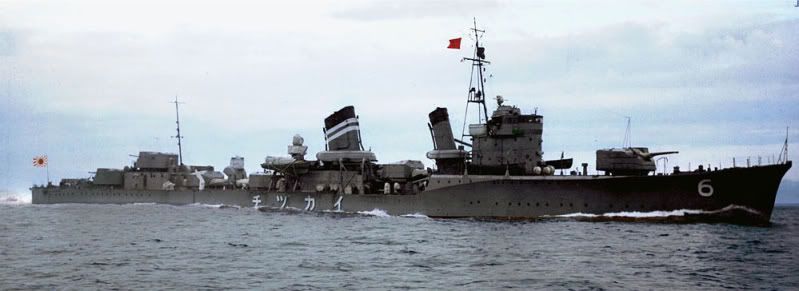
The IJN Ikazuchi, which helped save hundreds of US survivors.
Reaction from Washington was swift. President angrily denounced the sinkings as the unprovoked murder of American servicemen. In Rome, Mussolini accused the Americans of conspiring against Italy. Within a week the United States was formally at war with Italy.
In the aftermath of this incident, Commander Kudo was awarded the Navy Cross for his actions as was able seaman Sakabi Tenchi who repeatedly dove into the waters in the early hours of February 15th to help secure and save injured American sailors.
Moreover, The United States Navy shortly formed the Sixth Fleet under the command of Admiral Ernest J. King. Eight Battleships.... Half the US Battleline accompanied by the carrier Saratoga would be sent to the Mediterranean to join forces with the Combined Fleet.
On February 15, Japan and the United States of America signed a formal military alliance, joining America to the Pacific Entente with Korea and China. Later, the name of this alliance would be changed to a more all-encompassing title, in order to further distance themselves from the old Great War-era Entente. They would become known as... the United Nations.
The Langley Affair

Aircraft Transport USS Langley
At the start of 1939 with tensions rising between Japan and Italy, and the prospect of a General European War also looming on the horizon, the aviation transport USS Langley was dispatched with a cargo of 36 new P-40 fighters bound for British held Malta and to Mozambique where 16 P-40s had been purchased for the provisional Air Force there. The voyage would end in tragedy some 40 miles South West of Crete in an incident that would trigger the formal entry of the United States into the Pacific Entente and subsequently into war with both Italy and Nazi Germany.
It has been suggested by revisionist historians that President Roosevelt deliberately conspired in the destruction of the Langley in order to facilitate US entry into WW II. The speculation states that FDR knew of the impending surprise attack on Taranto and intentionally ordered the Langley and her escort; the destroyer USS Pope into the same waters where the Japanese Strike Force was now retiring. While it is true that US officials were aware that the Kido Butai had transited the Suez on February 10, 1939, it is also true that there is no evidence suggesting any deliberate intent to hazard Langley either on the part of Roosevelt or any other official, American or Japanese.
What is known is this: On February 11, USS Langley arrived at the island of Malta to deliver 20 P-40 fighters which had been purchased by the British. After a two day stay in which Langley's crew attempted to make repairs to the old ship's number two boiler which had gone out of commission during the transit from Gibraltar, Langley departed Malta bound for Alexandria where the better facilities there would allow a more thorough repair job before proceeding on to Mozambique.
At 19:37 hours on February 13, number two boiler again failed, critically reducing Langley's speed at a moment when other events were coming to a head.
By 10:00 hours local time the following morning, Langley and Pope had received word of the Japanese strike on Taranto harbor. Both ships were immediately brought to General Quarters with extra lookouts sent topside.

The USS Pope

An Italian Sparviero bomber
At 13:07 an Italian reconnaissance bomber reported to base spotting a carrier and one escort vessel sailing approximately 200 miles north of Benghazi. The Regia Aeronautica immediately armed and dispatched Sparviero torpedo bombers to the contact point. At 15:17 hours lookouts aboard.USS Pope reported aircraft closing from the starboard. By this point the Italian bombers were already descending to begin their attacks. Aboard Langley, wireless operators attempted to signal the approaching aircraft without success. Both ships went to battle stations. In short order Langley had taken four torpedo hits and was burning along her entire length. The Pope was smaller, faster, and more manueverable but tied to the wounded transport, she also took two torpedo hits and went dead in the water with a 13 degree list. On both ships the order was given to abandon as wireless operators issued a general distress call before joining their shipmates in life rafts to await their fate.
Eighty miles east, these messages were received aboard the ships of the Kido Butai. Aboard the flagship, Admiral Yamamoto faced a dilemma as he weighed the safety of his own ships against the instinct to aid whatever survivors there might be from the American vessels. Finally Lieutenant Commander Kudo Shinsaku of the destroyer Ikazuchi signalled a request to carry out a rescue. Knowing that any ship sent to pick up survivors would be at serious risk from Italian bombers, Yamamoto finally gave consent warning Kudo that the Ikazuchi would be on her own. The task force could not stop to wait. Yamamoto did however assign fighters from the carrier Kaga to sweep the area for further Italian aircraft. Shortly before midnight, the Ikazuchi arrived on scene. By 12:00 hours on the 15th, the crew of the Ikazuchi had picked up over five hundred survivors from the two doomed ships. Some 27 men had been killed on the Pope with another 16 aboard the Langley. but 576 men survived in large part due to Commander Kudo's actions on the night of the 14th.

The IJN Ikazuchi, which helped save hundreds of US survivors.
Reaction from Washington was swift. President angrily denounced the sinkings as the unprovoked murder of American servicemen. In Rome, Mussolini accused the Americans of conspiring against Italy. Within a week the United States was formally at war with Italy.
In the aftermath of this incident, Commander Kudo was awarded the Navy Cross for his actions as was able seaman Sakabi Tenchi who repeatedly dove into the waters in the early hours of February 15th to help secure and save injured American sailors.
Moreover, The United States Navy shortly formed the Sixth Fleet under the command of Admiral Ernest J. King. Eight Battleships.... Half the US Battleline accompanied by the carrier Saratoga would be sent to the Mediterranean to join forces with the Combined Fleet.
On February 15, Japan and the United States of America signed a formal military alliance, joining America to the Pacific Entente with Korea and China. Later, the name of this alliance would be changed to a more all-encompassing title, in order to further distance themselves from the old Great War-era Entente. They would become known as... the United Nations.


